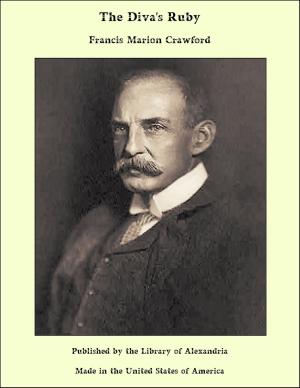The Fijians: A Study of the Decay of Custom
Nonfiction, Religion & Spirituality, New Age, History, Fiction & Literature| Author: | Basil Thomson | ISBN: | 9781465519863 |
| Publisher: | Library of Alexandria | Publication: | March 8, 2015 |
| Imprint: | Language: | English |
| Author: | Basil Thomson |
| ISBN: | 9781465519863 |
| Publisher: | Library of Alexandria |
| Publication: | March 8, 2015 |
| Imprint: | |
| Language: | English |
This volume does not pretend to be an exhaustive monograph on the Fijians. Their physical characteristics and their language, which have no bearing upon the state of transition from customary law to modern competition, are omitted, since they may be studied in the pages of Williams, Waterhouse and Hazlewood, which the author has freely consulted. All that is aimed at is a study of the decay of custom in a race that is peculiarly tenacious of its institutions—the decay that has now set in among the natural races in every part of the globe. The author lived among the Fijians with short intervals for ten years, first as Stipendiary Magistrate in various parts of the group, then as Commissioner of the Native Lands Court, and finally as Acting Head of the Native Department. Much of the anthropological information was collected for the Commission appointed in 1903 to investigate the causes of the decrease of the natives, of which the author was a member, and of that portion of the book his fellow-Commissioner, Dr. Bolton Glanvill Corney, C.M.G., and the late Mr. James Stewart, C.M.G., should be considered joint authors, though they are not responsible for the conclusions drawn from the evidence. To Dr. Corney, whose services to medical science in the investigation of leprosy and tropical diseases in the Pacific are so widely known, his special thanks are due. He also received valuable assistance from Dr. Lynch, the late Mr. Walter Carew and a number of native assistants, notably Ilai Motonithothoka, Ratu Deve, the late Ratu Nemani Ndreu, and Others. The late Mr. Lorimer Fison also helped him with many suggestions. The ideas expressed in the introduction were formulated in the author's presidential address to the Devonshire Association in 1905: the marriage system and the mythology were described in papers read before the Anthropological Institute: some account of the "Path of the Shades" and the fishing of the Mbalolo are to be found in Others of the author's books
This volume does not pretend to be an exhaustive monograph on the Fijians. Their physical characteristics and their language, which have no bearing upon the state of transition from customary law to modern competition, are omitted, since they may be studied in the pages of Williams, Waterhouse and Hazlewood, which the author has freely consulted. All that is aimed at is a study of the decay of custom in a race that is peculiarly tenacious of its institutions—the decay that has now set in among the natural races in every part of the globe. The author lived among the Fijians with short intervals for ten years, first as Stipendiary Magistrate in various parts of the group, then as Commissioner of the Native Lands Court, and finally as Acting Head of the Native Department. Much of the anthropological information was collected for the Commission appointed in 1903 to investigate the causes of the decrease of the natives, of which the author was a member, and of that portion of the book his fellow-Commissioner, Dr. Bolton Glanvill Corney, C.M.G., and the late Mr. James Stewart, C.M.G., should be considered joint authors, though they are not responsible for the conclusions drawn from the evidence. To Dr. Corney, whose services to medical science in the investigation of leprosy and tropical diseases in the Pacific are so widely known, his special thanks are due. He also received valuable assistance from Dr. Lynch, the late Mr. Walter Carew and a number of native assistants, notably Ilai Motonithothoka, Ratu Deve, the late Ratu Nemani Ndreu, and Others. The late Mr. Lorimer Fison also helped him with many suggestions. The ideas expressed in the introduction were formulated in the author's presidential address to the Devonshire Association in 1905: the marriage system and the mythology were described in papers read before the Anthropological Institute: some account of the "Path of the Shades" and the fishing of the Mbalolo are to be found in Others of the author's books















